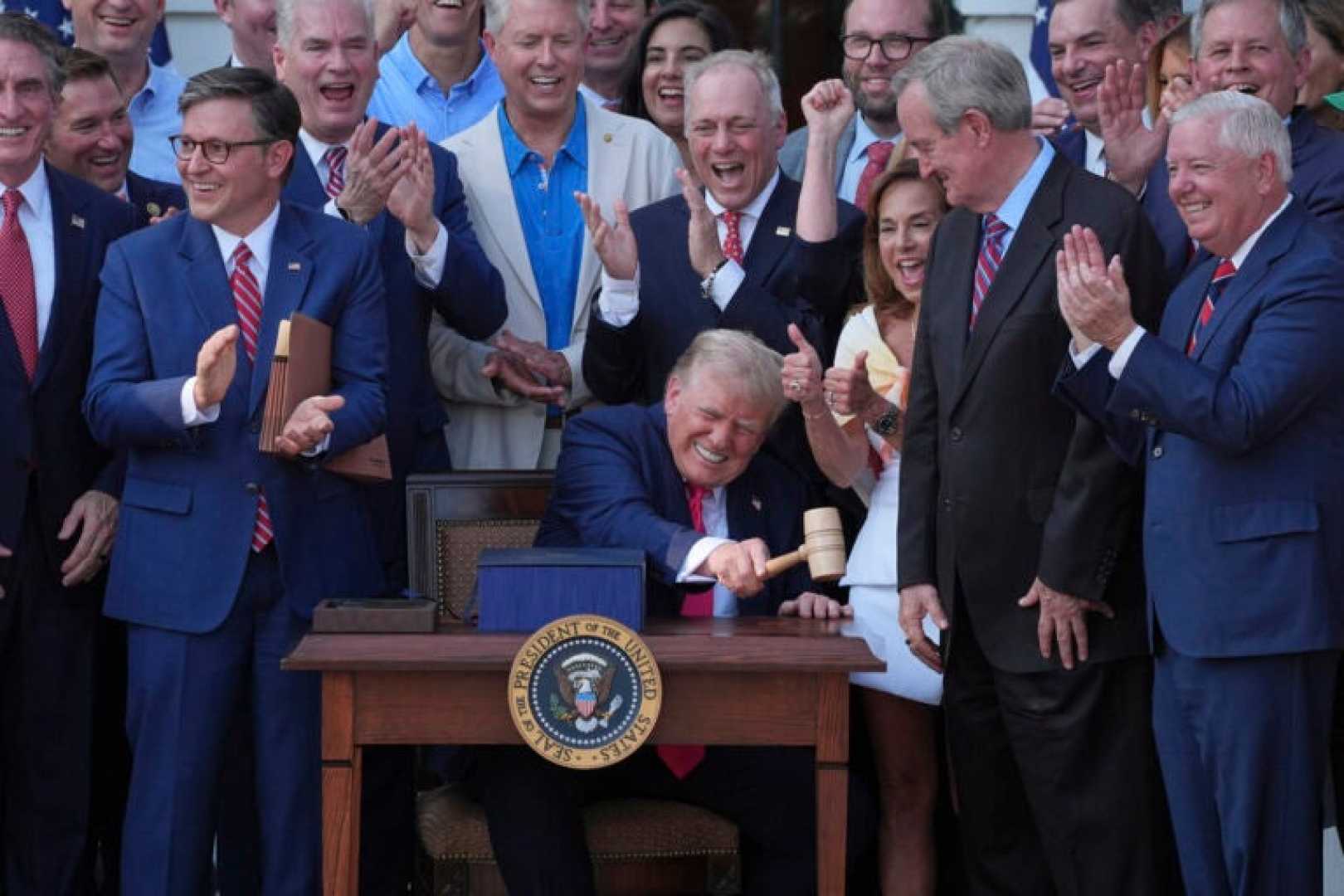Politics
Trump’s Tax and Budget Bill Sparks Nationwide Political Debate

WASHINGTON — President Donald Trump signed a sweeping tax and budget bill into law on July 4, 2025, marking a significant shift in U.S. policy that could heavily influence the 2026 midterm elections. The new legislation has drawn intense scrutiny from both sides of the political aisle due to its provisions affecting Medicaid and manufacturing programs, raising concerns over potential job losses.
The bill is expected to challenge Republicans more than Democrats in districts where voters may not be directly impacted but feel offended by the cuts. Many vulnerable GOP incumbents are in areas with large blue-collar populations who may feel the pressure of these economic changes.
Democratic strategist Mike Lux stated, “This is the fight for this election: Can we convince blue-collar voters that the Republicans just screwed them?” He emphasized that Republicans may not fully grasp the backlash these cuts could bring.
Brad Todd, a Republican consultant, asserts that Republicans can combat this narrative by focusing on the bill’s details. He adds, “Working-class voters who vote Republican believe that the work requirement for Medicaid recipients is reasonable.”
The bill retroactively cancels previously established tax incentives in the energy sector, causing concern among companies considering new investments. Hospital systems in rural communities, heavily reliant on Medicaid, could also experience significant hardships with the renewed work requirements to receive benefits, threatening local economies.
Despite the potential for widespread opposition, most of the districts that will face the most impact from the bill are not on Democratic target lists for 2026. According to the Democratic Congressional Campaign Committee, only eight out of the 64 House Republicans in high-risk Medicaid areas are considered viable targets.
The GOP believes they can leverage voter fatigue regarding tax cuts to gain support. “We will point to this as a result of what we did,” said House Speaker Mike Johnson. However, Democrats argue that the tax cuts disproportionately benefit wealthier Americans, with Florida Rep. Debbie Wasserman Schultz stating, “The cruelty is the point.”
Polling reveals many Americans oppose the bill, and fears grow over the potential loss of healthcare resources. The Democratic response is targeted on the need to protect middle-class benefits and challenge Republicans for cutting services that support low-income families.
“Cuts to health care and nutrition would be damning under any circumstances,” noted Democratic pollster Geoff Garin. The 2026 midterm elections will serve as a bellwether not only for the fate of the Republican majority but also for the long-term implications of Trump’s policies.












